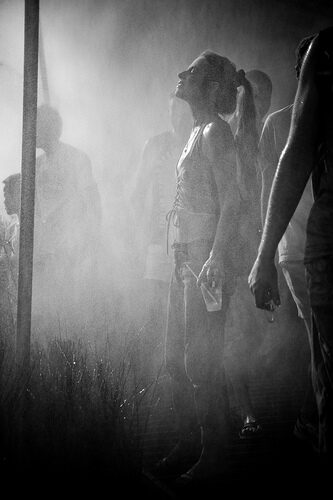Kris Guin queerability.tumblr.com Source: Mel Green/Flickr [image: Church wall hanging: rectangular quilt reading “Welcome” in blue letters, surrounded by red hearts in white diamonds, on a swirly rainbow background.] I think that communities and people of faith should make social justice work a priority. Not only do I think that people of faith have a moral imperative to make the world a better place, but I think it’s good for the faith community. I don’t know how non-Christian faith communities are, but I think the Church and church* are inaccessible to many folks. Dressing up in nice clothes is a social standard in many churches because of the belief that you need to “dress up for God.” This prevents many people from being able to go to church on Sundays because some people might not be able to afford nice clothes, or some people might have sensory issues with nice…
Tag: accessibility
TPGA is observing Autism Acceptance Month by featuring accounts from autistic people about the differences accommodations (or lack thereof) make in their lives. Today, Amanda Forest Vivian talks about why, no, she really can’t use a phone — and how reluctant other people can be to respect and accommodate her on this matter: Design by The Dusty Phoenix [image: White iPhone case with illustrated narwhal design.] Amanda Forest Vivian adeepercountry.blogspot.com I, an adult person, do not use a phone even though I can speak orally. In fact — and I’m really letting the team down here, according to a certain kind of motivational speaker — I can’t use a phone. If you’re anything like me, you have had the idea drummed into your head that you should never use the word “can’t” unless it is literally true — not just literally because there’s nothing figurative about my inability to use…
TPGA is observing Autism Acceptance Month by featuring accounts from autistic people about the differences accommodations (or lack thereof) make in their lives. Today, John Elder Robison talks about why accommodation is important, yet may not be enough to help autistic people like him with co-occuring conditions such as anxiety. John Elder Robison jerobison.blogspot.com With April being Autism month, the folks at TPGA asked me to write about accommodations. How about anxiety, Shannon asked? Foolishly, I agreed. After thinking about the topic for hours, till smoke dribbled from my ears, I cannot conceive of any accommodation I could request around my anxiety. Photo © John Elder Robison [Image: Close up of water running over a rock in a stream.] For me, anxiety is one of the most disabling aspects of autism, and it’s with me — at least at a low level — most all the time. I am almost…
For people with sensory access needs (like reactions to scented products), accommodations are not acts of good faith or favors, they are our rights!
Photo © Just Dining Chairs | Flickr / Creative Commons [Two taupe suede dining chair with blonde wood legs on a white background.] TPGA is observing Autism Acceptance Month by featuring accounts from autistic people about the differences accommodations (or lack thereof) make in their lives. Today’s example is from Aiyana Bailin, about how small accommodations changes, in this case choices regarding chairs, can have “huge results.” Aiyana Bailin restlesshands42.wordpress.com Once, at a convention of (mostly) autistic people, I observed a peculiar phenomenon. Chairs were arranged in a large circle, and perhaps 100 attendees gathered and sat. A handful of people, myself included, took their spot in the circle, but sat on the floor in front of their chair, rather than on the chair itself. This floor-sitting evoked no signs of disapproval; after all, most autistic people know that comfort doesn’t come in one-size-fits-all. But I’m used to people being…
Shannon Des Roches Rosa www.squidalicious.com I’ve written about disability-friendly museum days before — at the San Jose Children’s Discovery Museum, Palo Alto Junior Museum and Zoo, and San Francisco’s Exploratorium, specifically — and how awesome they are. I will be frank: my son does not go to children’s museums except for during these special events in which the museums are open to a limited number of guests with disabilities and their families, the staff are trained to accommodate, there are quiet rooms to retreat to, social stories are prepared ahead of time to introduce attendees to the space, and he can focus on fun. So I am grateful to San Mateo’s CuriOdyssey (formerly Coyote Point Museum) for hosting a Super Families event last weekend, and hope they will continue to host these events periodically. My son, his little sister, and her friend got to have the best time ever. I’ll…





